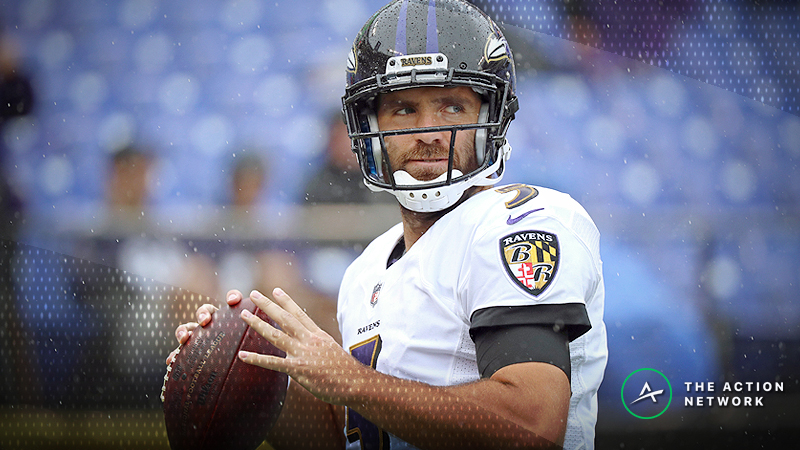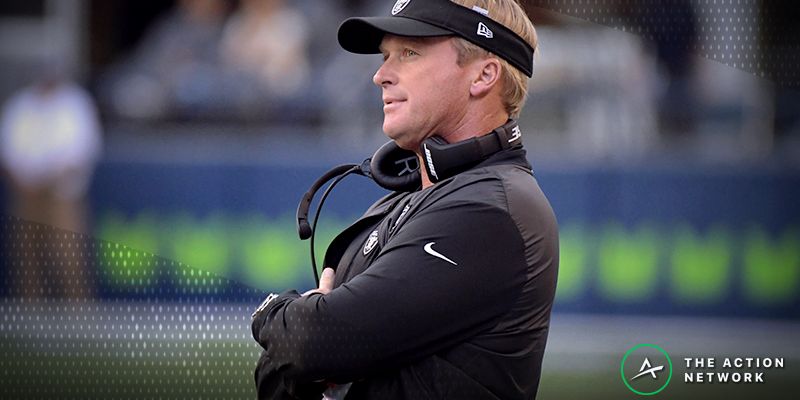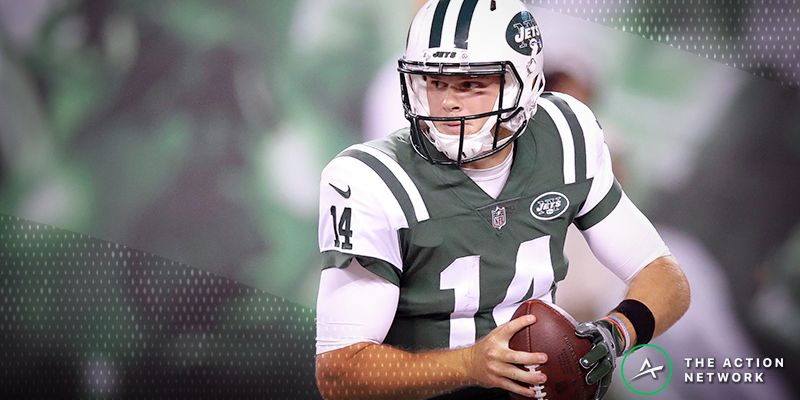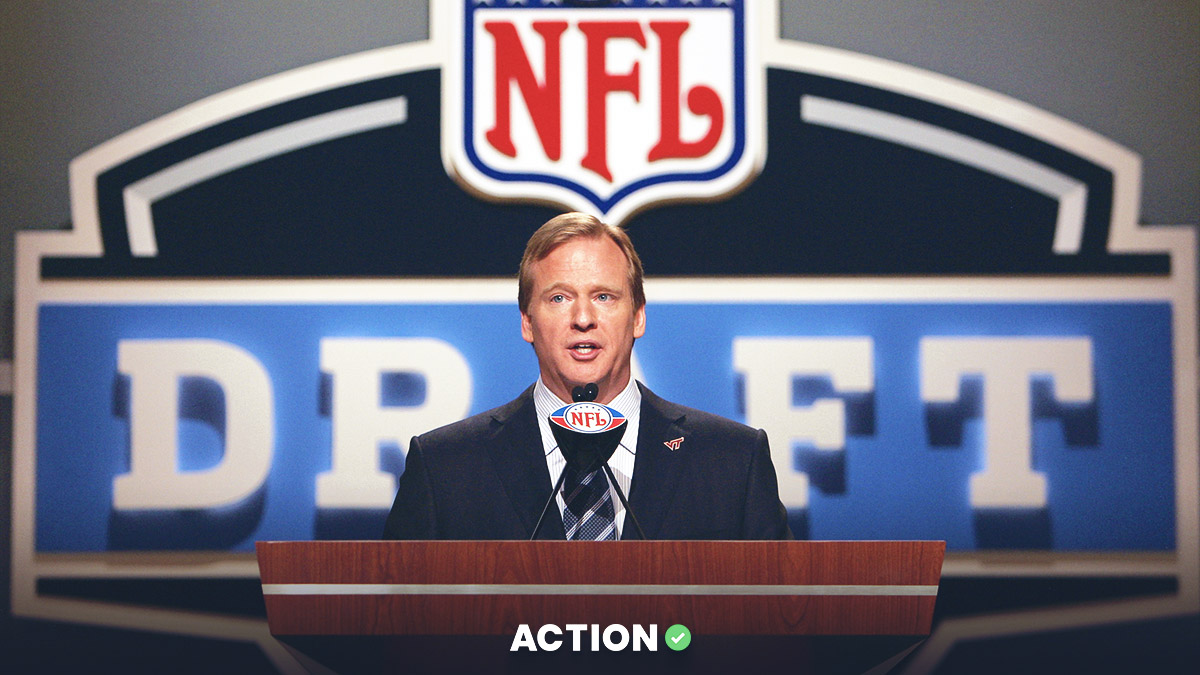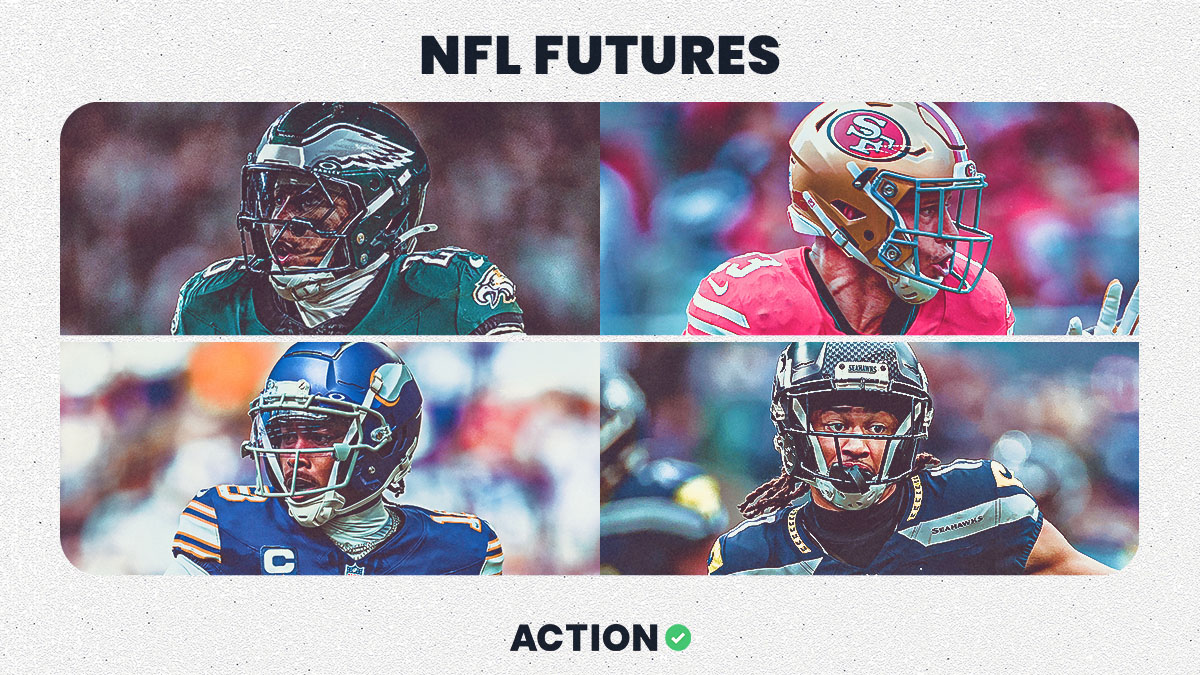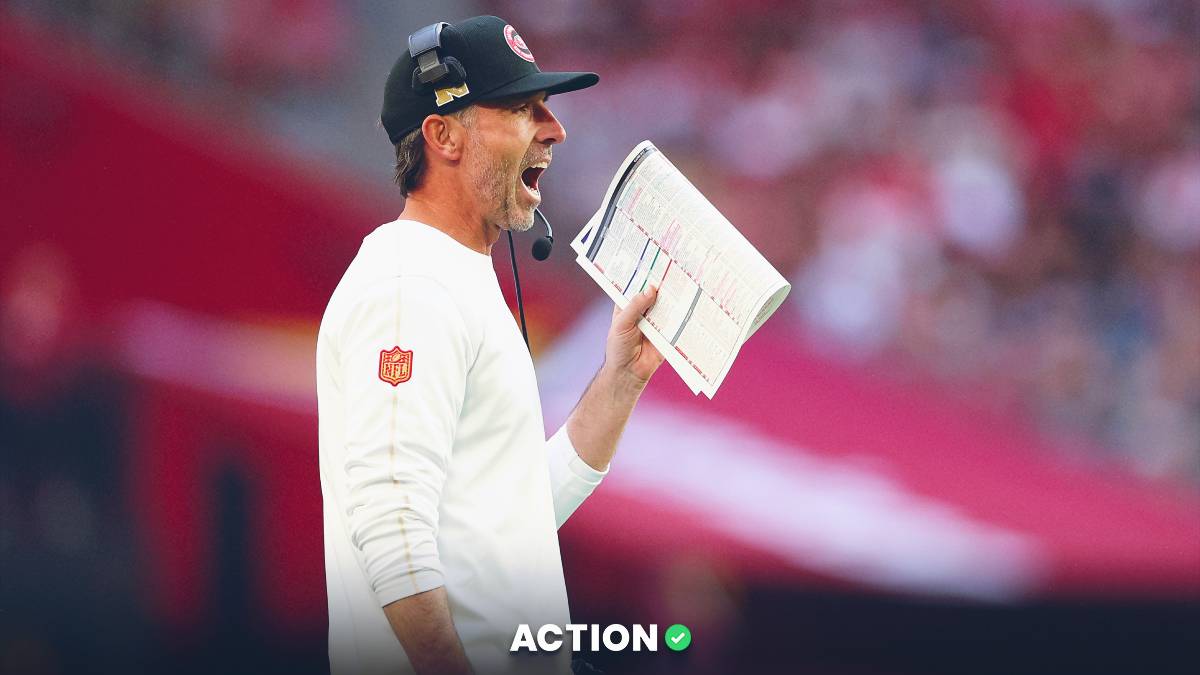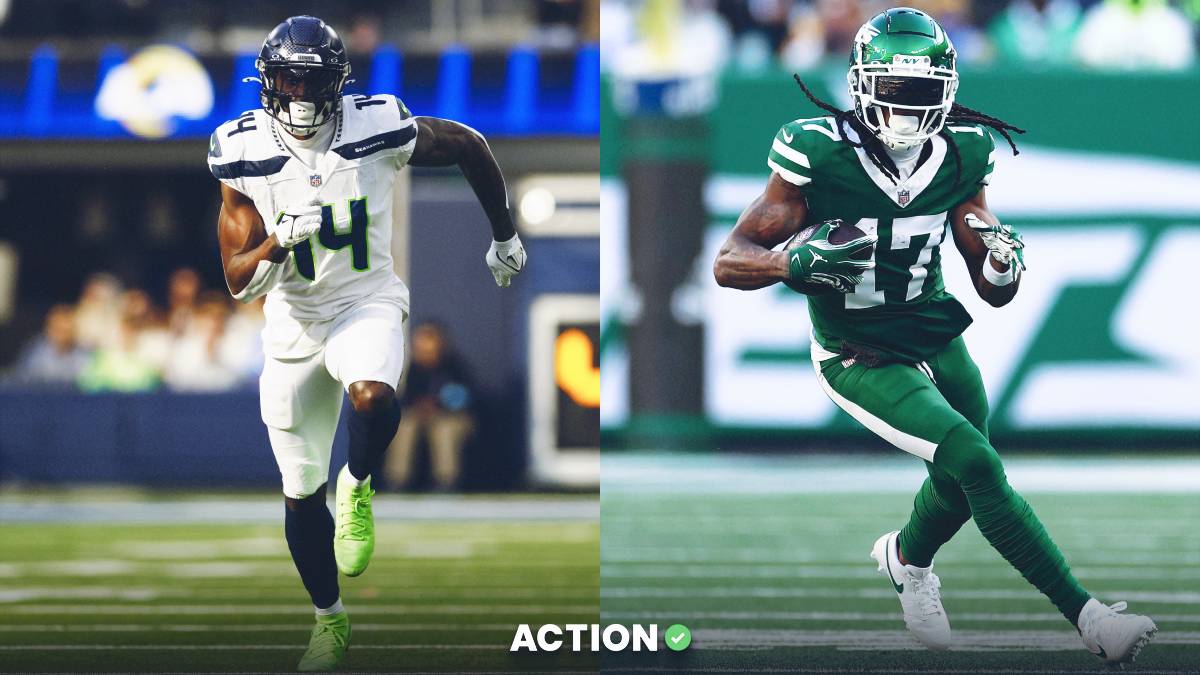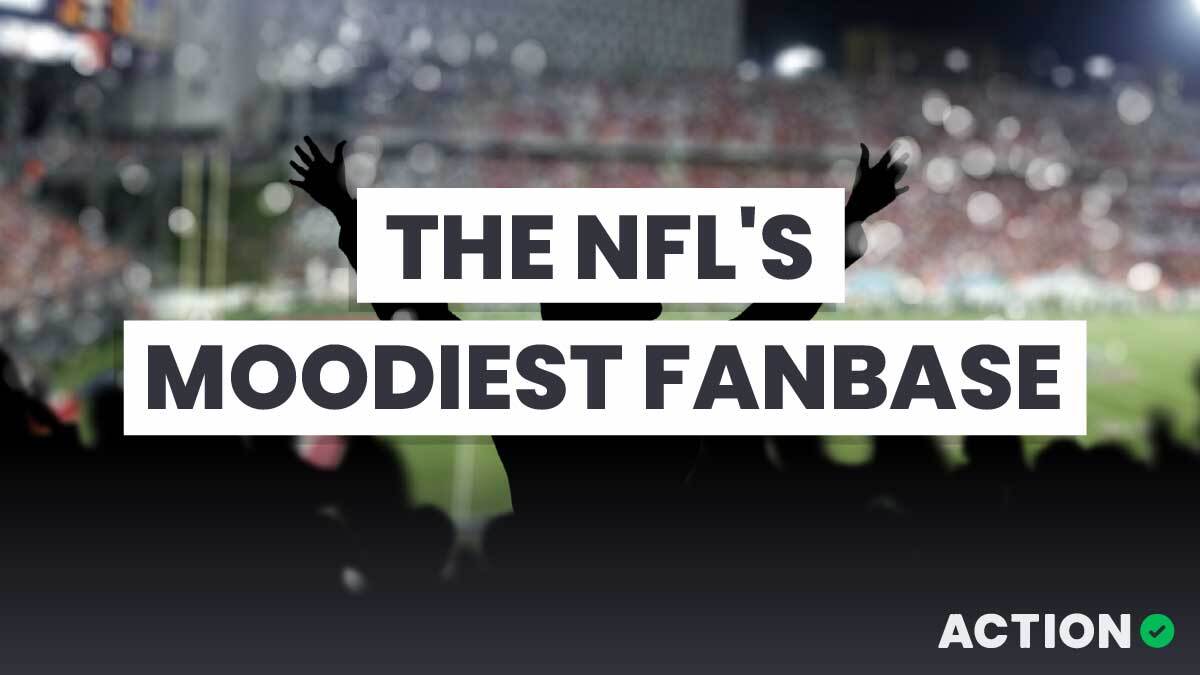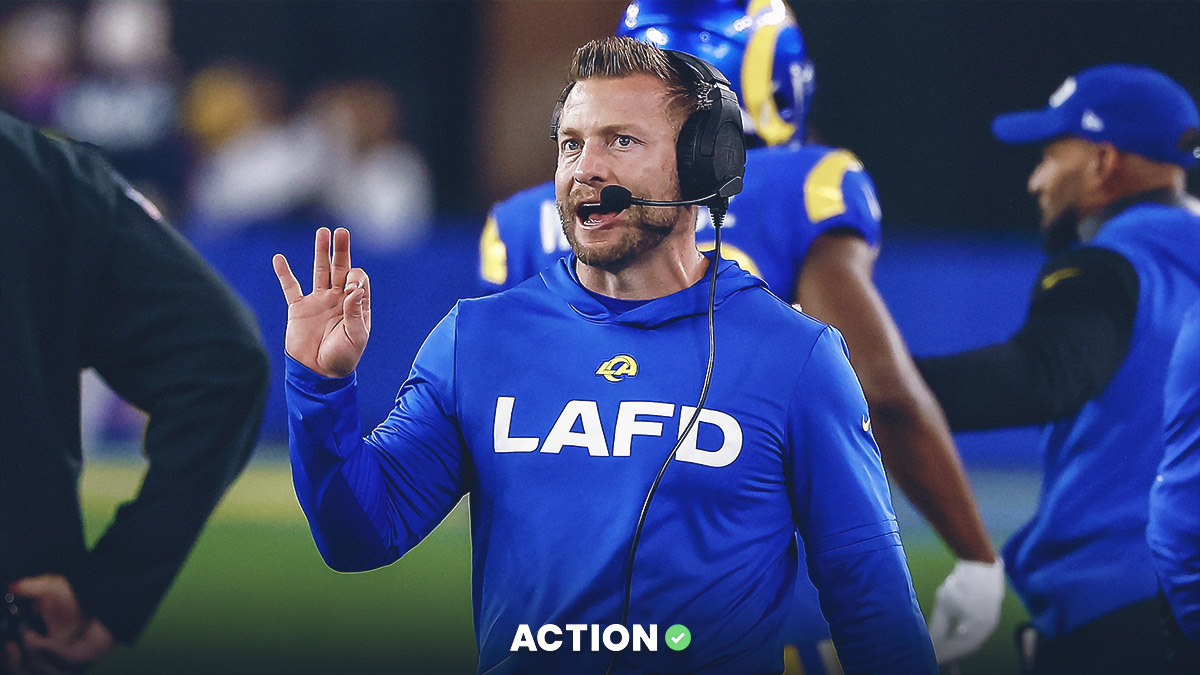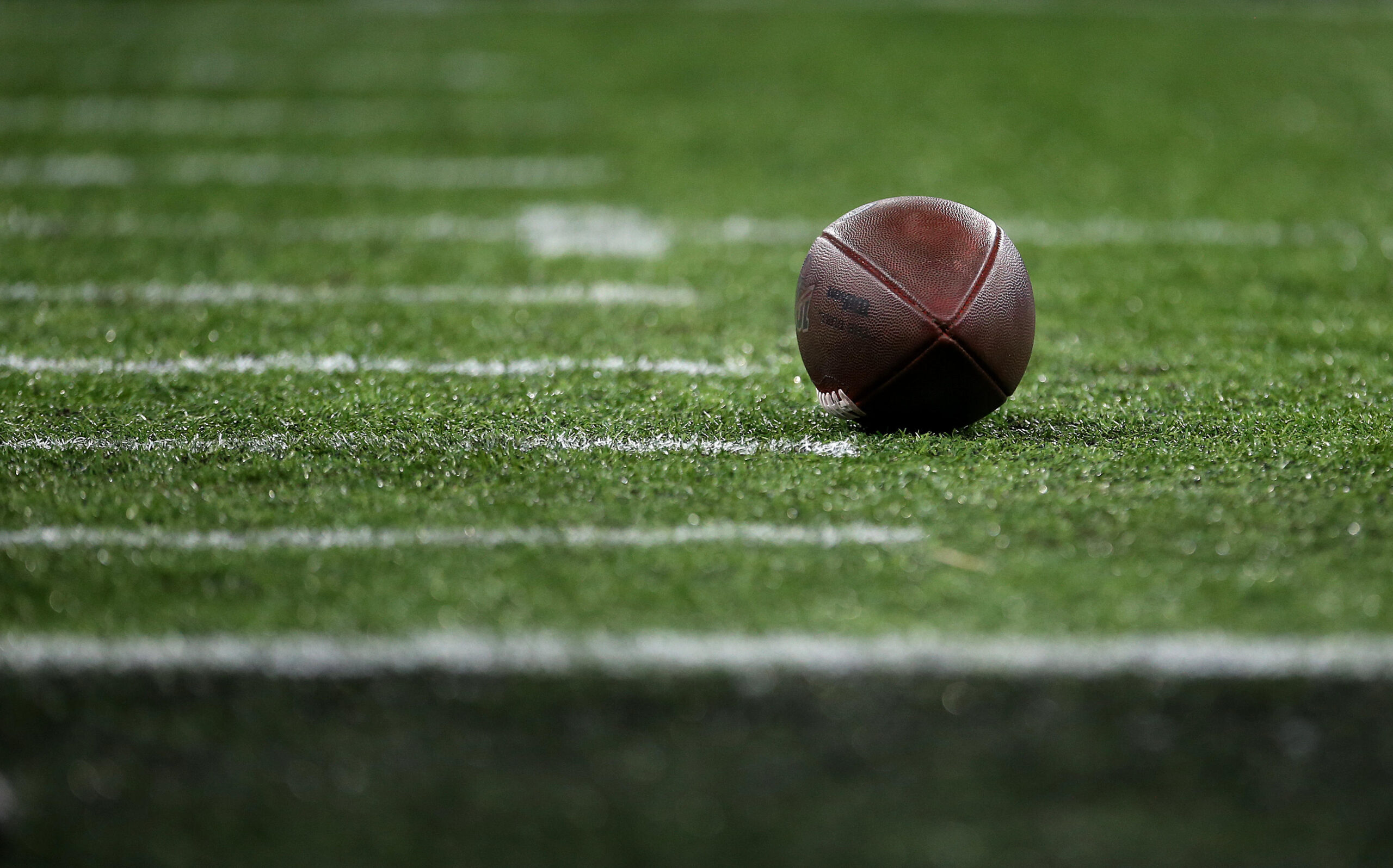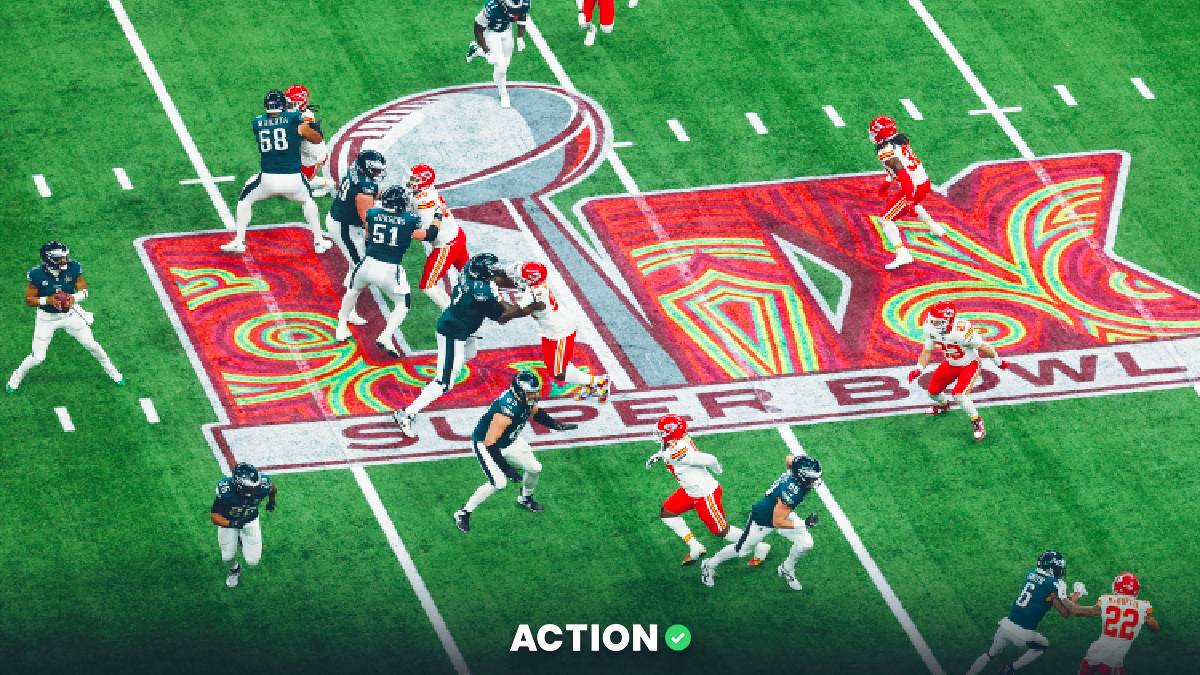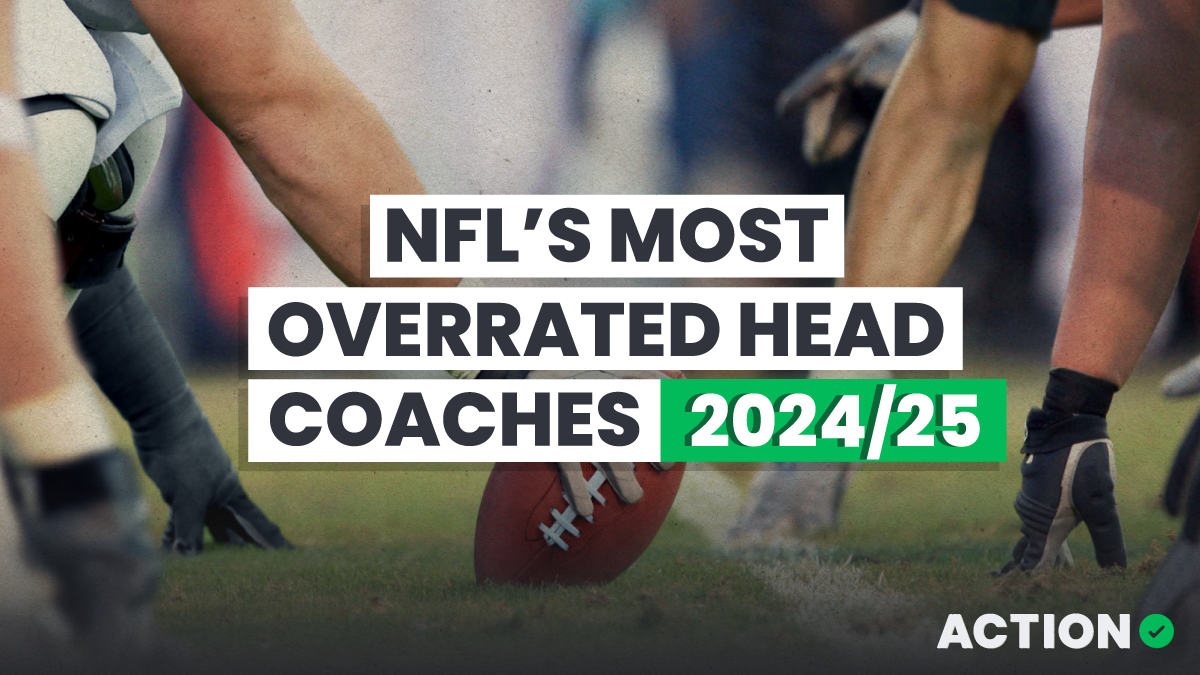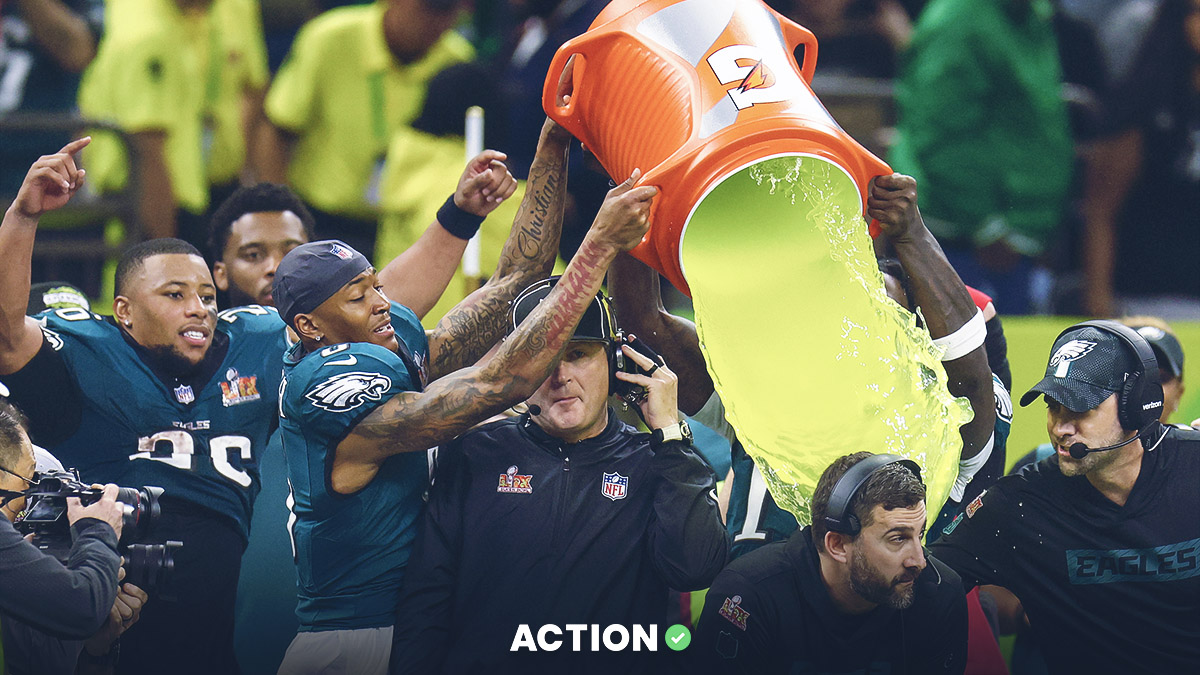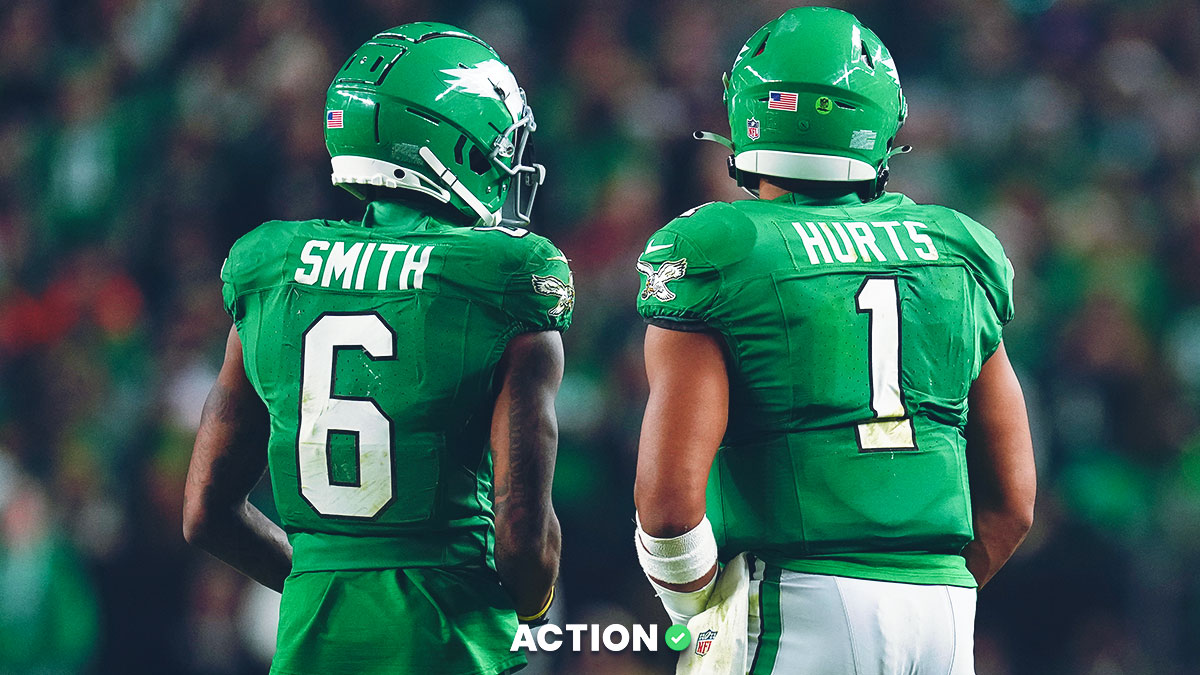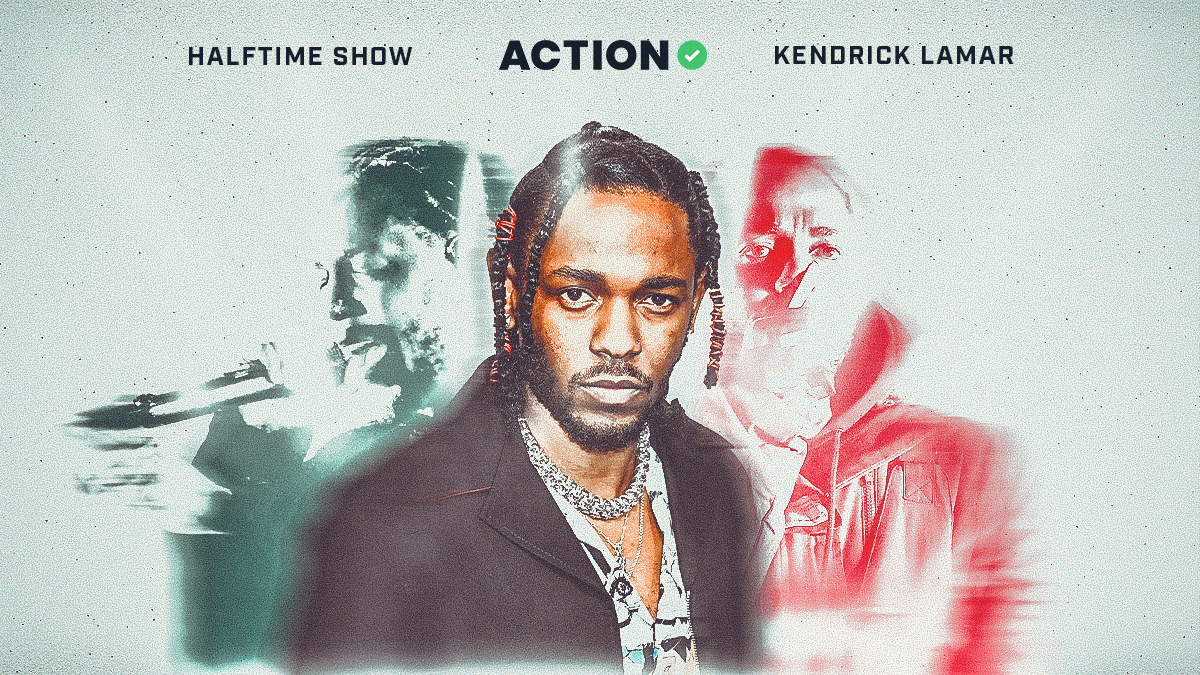Week 1 of the NFL season is wrapping up. After an entire summer of speculation, our key questions finally have some answers.
- You shouldn't bet against the Patriots in the regular season.
- The Mercedes-Benz Superdome is still the Coors Field of fantasy football.
Hard-hitting analysis, I know.
Here's the thing: We know way more than we we did a week ago, but there's still … getting calculator … multiply 16 by 15 and then add 2 … there's still 242 games in the regular season. Entering Week 2, we might be tempted to think that we now have answers to everything: Usage, efficiency, upside, etc. That couldn't be further from the truth. What we have are 16 different one-game samples, and we have no idea how representative or predictive they are.
Sure, I feel confident in saying that the Bills are bad. But other than that, what can we say for certain? Not much. Don't be assured in your assumptions based on one week of data. Don't read too much into what happened this past weekend. It's just one weekend.
There's still a lot of football to play.
>> Sign up for The Action Network's daily newsletter to get the smartest NFL conversation delivered into your inbox each morning.
Reading Is the Key to Winning
This offseason I tried to dedicate a lot of my free time to reading, because I believe that reading helps me stay sharp. It forces me to develop new perspectives. By reading, I become a more holistic thinker.
I used to read literature — poetry, drama, shorts stories, novels — but in recent years I've shifted towards information-rich nonfiction, which at its best is both philosophical and actionable. On his personal blog, FantasyLabs co-founder Jonathan Bales has a non-DFS reading list for DFS players, with books such as "The Signal and the Noise" by Nate Silver and "Antifragile" by Nassim Nicholas Taleb. Those are the types of books I like to read.
To me, the goal of reading is to learn how to lead a life with more expected value (EV). When I actively read, I find that I tend to view everything — sleeping, eating, working, exercising, watching television, etc. — through a +EV-seeking perspective. I more attentively examine my actions and ask myself, "Is this what I should be doing with my time? If so, how can I do this better?"
With that in mind — and since we still have … scrolling back up … scrolling back down … 242 NFL games left — here my five best practices for attending NFL games this year.
Side note: Discarded title ideas for this article were "How to Attend an NFL Game Like a Winner" and "The Winning Strategy for Attending an NFL Game." In case that information helps you contextualize this piece.
1. Don't Go to NFL Games
I'm not entirely joking. On the Week 1 episode of "The Three Donkeys Podcast," Adam Levitan (who manages the FantasyLabs news feed and ownership projections in our NFL Models) has this exchange with Bales in which he makes a case for not watching NFL games in person.
Levitan: Bales, what's going on?
Bales: Not much, man. I think I might go to the [Eagles-Falcons] game on Thursday. Is there any chance you're going?
Levitan (laughing): How much are you paying me to go to the game? I honestly think — and not because I'm rich — but I think that you'd have to pay me, like, $700 to go to a football game.
Bales: What are you talking about?
Levitan: It's one of the worst experiences you can possibly have in life.
Bales: Not if you get good seats, man.
Levitan: I don't need dudes, uh, meatheads, smashing Natty Light cans against their face, yelling about dudes kneeling for the anthem. I don't need disgusting food. I don't need the whole parking lot scene. And, honestly, I want to be able to sit and actually be able to see the game.
Bales: I couldn't disagree more with that. [Levitan laughs.] It's fun, dude. It's the ambiance, the experience. It's fun.
Levitan: Yeah, I am not going to the game. … I will be on Labs news right up until lock, though. So, uh, almost as much fun as going to the game.
Bales is right that going to games is fun … but there are lots of fun things I don't do, because in the long term — and the long term is what matters most — doing those things is not +EV.
I'm not saying that going to games is -EV, but to some people (like Levitan) it's a waste of time — a loss of potential production — which is why he'd want to be compensated.
I enjoy going to games on occasion, especially if they have extra significance — playoff games, rivalry matchups, etc. — but I'm also sympathetic to Levitan's perspective. If you take the time to go to an NFL game, you're not just dedicating a few hours of your time. You're investing most if not all of your day (and a significant amount of money) into everything that goes into going to a game: Preparation, transportation, pregame festivities, the game itself, the logjam of people leaving the event, the process of getting back home, and finally getting home and needing to take an immediate shower to wash the day off your body.
Never have I gone to an NFL game and had the entire process not take at least eight hours. And, again, you're PAYING to spend your time in this way.
You don't have to be an ascetic (my Venmo is open) to see that quite often there are better ways to spend your time. For instance, if I'm watching the NFL, I prefer to do it at the gym. There are multiple televisions for all of the games, and instead of consuming thousands of empty calories I can exercise and attempt to get in better shape as I enjoy watching some football. I'm usually not very good at multi-tasking — example: I find it hard to work with a movie on in the background — but this practice of watching football while exercising I find to be highly +EV, especially since working out on its own is +EV.
I'm not saying that you must exercise while watching football or that you should never go to games. I'm just saying that in many instances not going to the game is probably a better life decision than going to the game.
On an unrelated note: People usually don't have fun when they hang out with me. I don't know why.
2. Don't Drive to the Game
If you go to a game, it seems like a -EV move to drive there. If you and your companions take a car, you'll have to pay for parking. You'll have to deal with the annoyance of finding a parking spot. You'll have to spend hours in post-game traffic just to get out of the parking lot. And, in some cases, you might have to consume less alcohol than you want just so you can be sure that someone is sober for the drive home.
Just figure out an alternative transportation solution. Have someone drop you off and pick you up. Take public transport if it's convenient. Be responsible, and also be free to have more fun.
3. Don't Pay for Good Seats
On "The Three Donkeys Podcast," when Levitan says that being at a game is "one of the worst experiences you can have," Bales responds with: "Not if you get good seats, man."
Yes, and no.
In general, good seats are better than bad seats, but most people don't have the money to spend on good tickets. It's expensive enough just to buy bad tickets. Also, there are a lot of Natty Light-smashing jackasses out there who have expendable income. Paying for good seats is no guarantee that you won't be surrounded by inappropriate idiots.
But, more importantly, part of the fun of being at a game — at least for some people — is being in close proximity to inappropriate idiots and, just maybe, acting inappropriately idiotic yourself (in a totally legal and friendly and nonthreatening way to everyone else). In some ways, a football game is like a circus. There's a touch of the carnivalesque. You don't go to a football game just to watch the game. You go to watch other people watch the game and to experience the joy of watching with thousands of people around you.
If you're at a game, you get that experience regardless of where you sit — but the good tickets will cost so much more, and the bad tickets might actually put you in a livelier, more memorable atmosphere.
If what you enjoy about going to an NFL game is the simple act of being there with other like-minded fans, don't pay up for good seats, especially if doing so would be financially onerous.
4. Leave If Your Team Gets a Big Lead
This might seem counterintuitive, but it's a next-level strategy-driven practice. While it might seem (and actually be) fun to stay at a game as your team piles on points, there are diminishing returns and also underappreciated risks.
Example: I'm sure Ravens fans in Week 1 had fun partying in the second half of a 47-3 blowout victory over the Bills after the home team scored 26 unanswered first-half points. But was the 21-3 performance after half time really something the fans cared about? Would they have enjoyed it substantially less if the second-half score had been 21-21? Or even slightly in favor of the Bills?
Plus — and this is the big point — what if the Ravens had lost? What fans would want to be there at the stadium to watch a Joe Flacco-led team choke away a 26-point lead? While that's not likely to happen, if it did happen being there to witness it would be devastating.
If your team has a big lead and you leave, you probably won't regret your decision, even if your team continues to dominate when you're gone. At the most, you might have the smallest of regret, which will linger for no more than a few minutes. But if you leave and your team loses the big lead, the benefit of not experiencing that collapse first hand is tremendous.
Add in 1) the upside of beating traffic as you leave the event early and 2) the unexpected free time you gain by getting on with the rest of your day, and this is a clear +EV move.
5. Bet on the Game
There's being invested … and then there's being invested. Nothing's better than being at a game your team wins — except for betting on the game and winning yourself. When you have action on the line, you cheer harder. You care more. And you win bigger.
A couple of points: First, it doesn't matter how much money you bet. The amount is probably irrelevant. Whether you have $10 or $10,000 riding on the game, you'll still feel more invested in the outcome than you otherwise would, and that feeling is intoxicating. Think of the money you place on a bet as a shot of adrenaline you're injecting into your game-going experience. As long as you're not administering a dangerous dosage, it's all good.
Secondly, it doesn't matter what kind of bet you make. Spread. Moneyline. Over/under. Parlay. Team total. Whatever. It doesn't matter. What matters is that you're putting personal skin in the game.
My favorite types of bets are players props, since I have a fantasy background and tend to focus more on individual than team performance. With the FantasyLabs Player Props Tool, it's easy for me to sort through potential bets on Sunday morning as I finalize my fantasy football rankings and set lineups.
If you'd rather speculate on teams and games than players, check out all the NFL betting content at The Action Network. Also, follow our experts' bets for free in the Action Network app, which is a great way to see what some sharp NFL analysts are thinking.
Personally, I also enjoy doing research with the Bet Labs tools, which can help you discover spread, moneyline and over/under trends based on any number of factors.
In case you're new to betting or would like to learn more about the fundamentals of sports gambling, here are some of my favorite NFL betting articles.
- Common Mistakes Sports Bettors Should Avoid
- Sports Betting Concepts to Know to Wager Like a Pro
- Key Numbers to Know When Wagering on Totals
- Best and Worst NFL Head Coaches Against the Spread
- NFL's Best and Worst QBs at Covering the Spread
More NFL Game-Going Best Practices?
I by no means am an expert at going to NFL games. Again, I rarely attend them. If you have valuable attendance hacks of your own, please share them with me on Twitter @MattFtheOracle. It's possible that I could include them in a quick follow-up piece.
Matthew Freedman is the Editor-in-Chief of FantasyLabs. He has a dog and sometimes a British accent. In Cedar Rapids, Iowa, he’s known only as The Labyrinthian.


